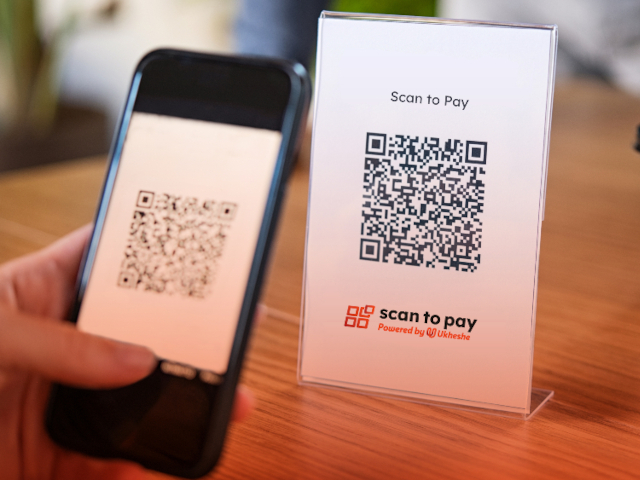Everything you need to know about QR code payments
By Industry Contributor 29 June 2023 | Categories: news
By Paul Selibas, Division President at Ukheshe
If there’s one thing almost no one leaves home without, it’s their mobile phone. How many times have you forgotten your keys or worse still, your wallet, and been left stranded at the shops? Now you don’t need your purse or your wallet, or even a bank card to go to the store. All you need is your cell phone.
The world of payments has come a long way since cheque books. From manual credit card imprinters to early credit and debit card terminals, we now have contactless, safe and secure payments via a scanning process between the customer’s mobile device or smartphone and a QR code at the vendor’s point of sale.
Scan to Pay powered by Ukheshe is the largest QR ecosystem in South Africa and as such is tried and tested by millions of merchants and consumers. In fact, it is the QR payment platform of choice of more than 500 000 vendors, 14 banks and fintech companies and 94 payment service providers as well as six acquirers. A completely cashless, seamless transaction between you, the customer and the vendor happens by simply directing your phone screen at the displayed QR or Quick Response code, which acts in a similar way to a barcode, and technology does the rest!
With Scan to Pay, once a customer has loaded their payment details into the Scan to Pay app, all payments are securely protected using their bank card PIN or 3D Secure - depending on the chosen card. The QR code has all the necessary information for the transaction to take place and at the point of payment, your payment details are never shared with the merchant, making it even more secure.
The rapid adoption of digitised payment methods has led to a surge in the use of QR codes, amongst the many other options including tapping and inserting cards into card readers. Retailers, restaurants and other vendors can create their own codes and display the QR code at the point of sale. In addition, dynamic information can also be programmed into the code, for example, an entire restaurant menu can be accessed by scanning a QR code which links to a URL, and when the bill arrives, scan another QR code to pay.
Online e-commerce stores are also using QR codes to enable ease of payment at the online checkout. Resistance to online shopping in South Africa has generally come from uncertainties around the security of entering banking details onto third-party platforms, but QR codes alleviate this concern as payment happens directly between the QR code on the site and your device. We are also seeing the inclusion of QR codes into standard invoices for good and services, which speeds up and facilitates payment. They are also useful for deliveries and for taking payment after a home service has been provided as it does not require the person who carried out the work to have any kind of device.
So, QR codes are good for customers and businesses alike. They are accurate – the price is preprogrammed into the QR code – they are fast, secure and contactless. They deliver a superior check-out service to the customer and immediate payment to the vendor without the need for any point-of-sale device.
Scan to Pay QR payment is available in all major banking apps in South Africa, additionally the Scan to Pay app can be downloaded onto your mobile device. Wherever you see the Scan to Pay sign, know that Ukheshe is powering the technology which is transforming the payments landscape.
Most Read Articles

Have Your Say
What new tech or developments are you most anticipating this year?



